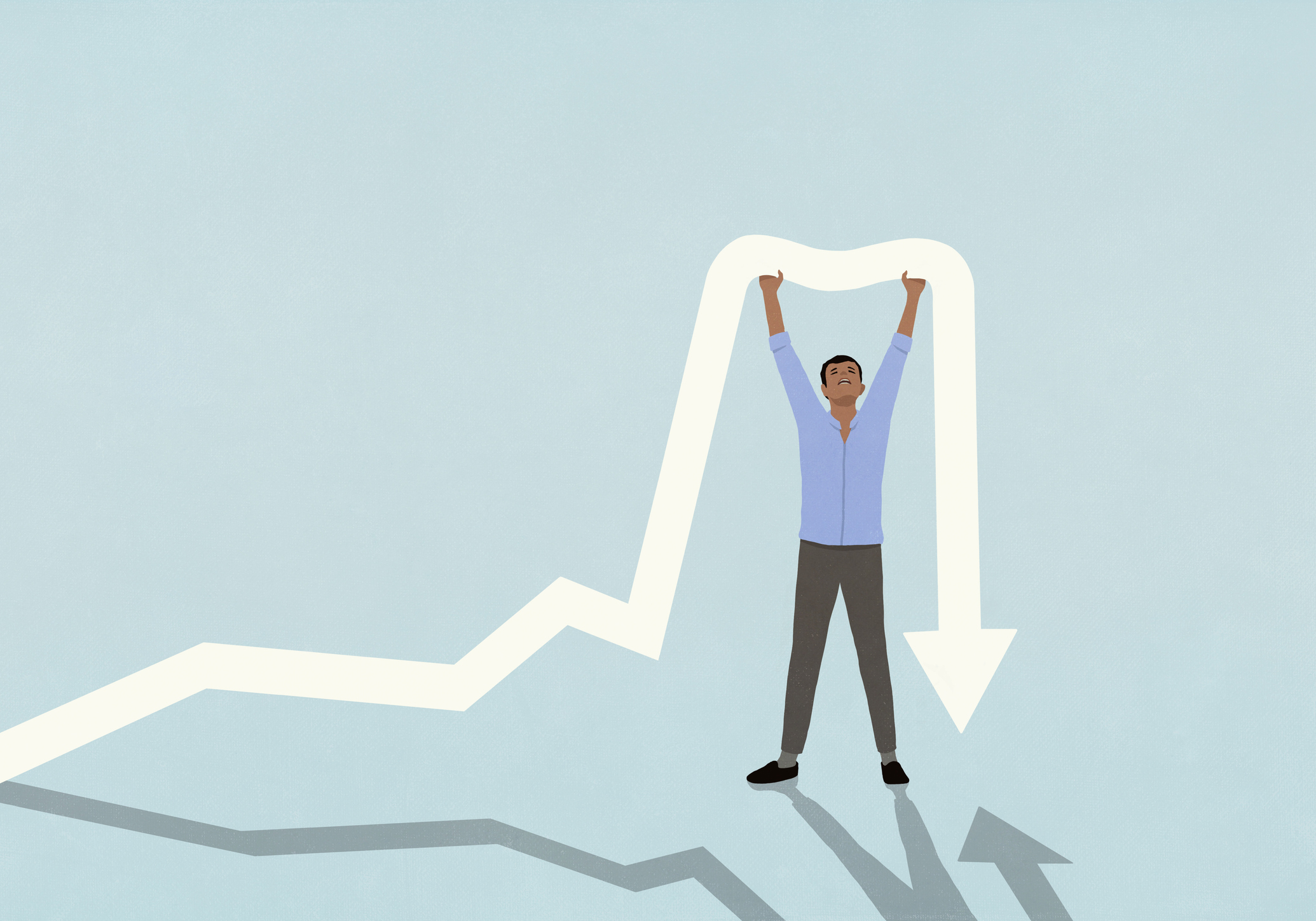The Smartest Places to Keep Your Cash If Rates Drop in 2025
The Fed meets next week and will likely cut rates. Learn how savers can stay ahead of the game even with lower returns.


Profit and prosper with the best of Kiplinger's advice on investing, taxes, retirement, personal finance and much more. Delivered daily. Enter your email in the box and click Sign Me Up.
You are now subscribed
Your newsletter sign-up was successful
Want to add more newsletters?

Delivered daily
Kiplinger Today
Profit and prosper with the best of Kiplinger's advice on investing, taxes, retirement, personal finance and much more delivered daily. Smart money moves start here.

Sent five days a week
Kiplinger A Step Ahead
Get practical help to make better financial decisions in your everyday life, from spending to savings on top deals.

Delivered daily
Kiplinger Closing Bell
Get today's biggest financial and investing headlines delivered to your inbox every day the U.S. stock market is open.

Sent twice a week
Kiplinger Adviser Intel
Financial pros across the country share best practices and fresh tactics to preserve and grow your wealth.

Delivered weekly
Kiplinger Tax Tips
Trim your federal and state tax bills with practical tax-planning and tax-cutting strategies.

Sent twice a week
Kiplinger Retirement Tips
Your twice-a-week guide to planning and enjoying a financially secure and richly rewarding retirement

Sent bimonthly.
Kiplinger Adviser Angle
Insights for advisers, wealth managers and other financial professionals.

Sent twice a week
Kiplinger Investing Weekly
Your twice-a-week roundup of promising stocks, funds, companies and industries you should consider, ones you should avoid, and why.

Sent weekly for six weeks
Kiplinger Invest for Retirement
Your step-by-step six-part series on how to invest for retirement, from devising a successful strategy to exactly which investments to choose.
The September Federal Reserve meeting is right around the corner. On September 16-17, members of the Federal Open Market Committee will determine if the dwindling job reports will be enough incentive to cut rates for the first time this year.
The CME FedWatch is 92% certain that a rate cut of 25 basis points will happen this month. When the Fed does cut rates, it will impact savers. If you have money in a high-yield savings account, you'll likely see a slight reduction in APY, as this can occur days to months after the Fed's announcement, depending on your financial institution.
However, savings rates have far exceeded 4% for a long time now. And even with a slight reduction, they'll have you outpacing inflation in the meantime. With this in mind, here's where I'm parking my money.
From just $107.88 $24.99 for Kiplinger Personal Finance
Become a smarter, better informed investor. Subscribe from just $107.88 $24.99, plus get up to 4 Special Issues

Sign up for Kiplinger’s Free Newsletters
Profit and prosper with the best of expert advice on investing, taxes, retirement, personal finance and more - straight to your e-mail.
Profit and prosper with the best of expert advice - straight to your e-mail.
Set a base with an emergency fund
I'll be honest, I like to have flexibility in accessing my cash. It's why I use high-yield savings accounts to build emergency savings. What I like about them is that they're very easy to set up, they come with FDIC insurance up to $250,000 and you'll earn a healthy rate of return for risk-free options.
Circling back to the cash access, a high-yield savings account also allows me to pivot when I want to invest in something else. If inflation continues to creep up (grocery and energy prices are obscene right now), it gives me a chance to capitalize on riskier ventures that also offer a potentially better return.
With this in mind, if you're a saver who doesn't mind tucking money away, but you also want access to it quickly, use this Bankrate tool to find the best options fast:
My tip: Once you’ve built your emergency fund, consider separating it from other savings so you’re not tempted to dip into it. This way, your safety net stays intact, but your surplus dollars continue earning more while staying relatively liquid.
Lock-in a higher rate now
A certificate of deposit is a smart approach for established savers who don't mind tucking their money away and forgetting about it for months to years. I've used CDs in the past for short-term savings goals, and they do a great job of keeping you on course to meeting them.
The reason? They come with penalties if you withdraw before the term expires. And I don't like losing money.
Right now, my family has a few short-term savings goals, such as home renovations we want to do before putting it on the market. For this reason, I'll take a portion of my savings and devote it to a CD.
Compare some of today's best CD rates with the tool below, powered by Bankrate:
My tip: As I mentioned before, I like having access to my cash. So, there's a cheat code with CDs you can do to achieve both the benefit of locking in a higher rate now, with cash access should you need it moving forward.
A no-penalty CD is the Goldilocks of savings options. You can sign up for one now to lock in a great rate before the Fed lowers them. And after an initial funding term of one week to a month, you can withdraw your money either all at once or make occasional withdrawals once per month without any fees.
Here's where I wouldn't park my money right now

There are other savings options I won't touch for several reasons. One of which is a savings account from a traditional brick-and-mortar bank. Don't get me wrong, it felt like Cheers every time I went into my local branch. However, they don't offer rates anywhere close to what you receive with online banks.
I would also caution against using money market accounts. They work best for established savers who feel comfortable maintaining average daily balances above $1,000. If you're trying to build your savings or don't feel confident you can hit that target regularly, you'll likely pay monthly fees, which can offset any interest earned.
The other thing about MMAs is that they come with transaction restrictions. If you plan to write checks on the account or use debit cards, know that many banks will limit it to six transactions per month. Any transactions exceeding this limit could cost you, again negating some of the interest earned.
Ultimately, the market will soon change for savers. And even with the reduced rates, a high-yield savings account will help you earn more than inflation takes, with quick access to your money.
Further, if you have some short-term savings goals and can part with some cash, consider a CD right now. Locking them in before September 17 ensures you receive the highest rate.
Related content
Profit and prosper with the best of Kiplinger's advice on investing, taxes, retirement, personal finance and much more. Delivered daily. Enter your email in the box and click Sign Me Up.

Sean is a veteran personal finance writer, with over 10 years of experience. He's written finance guides on insurance, savings, travel and more for CNET, Bankrate and GOBankingRates.
-
 Quiz: Do You Know How to Avoid the "Medigap Trap?"
Quiz: Do You Know How to Avoid the "Medigap Trap?"Quiz Test your basic knowledge of the "Medigap Trap" in our quick quiz.
-
 5 Top Tax-Efficient Mutual Funds for Smarter Investing
5 Top Tax-Efficient Mutual Funds for Smarter InvestingMutual funds are many things, but "tax-friendly" usually isn't one of them. These are the exceptions.
-
 AI Sparks Existential Crisis for Software Stocks
AI Sparks Existential Crisis for Software StocksThe Kiplinger Letter Fears that SaaS subscription software could be rendered obsolete by artificial intelligence make investors jittery.
-
 One of the Most Powerful Wealth-Building Moves a Woman Can Make: A Midcareer Pivot
One of the Most Powerful Wealth-Building Moves a Woman Can Make: A Midcareer PivotIf it feels like you can't sustain what you're doing for the next 20 years, it's time for an honest look at what's draining you and what energizes you.
-
 I'm a Wealth Adviser Obsessed With Mahjong: Here Are 8 Ways It Can Teach Us How to Manage Our Money
I'm a Wealth Adviser Obsessed With Mahjong: Here Are 8 Ways It Can Teach Us How to Manage Our MoneyThis increasingly popular Chinese game can teach us not only how to help manage our money but also how important it is to connect with other people.
-
 Looking for a Financial Book That Won't Put Your Young Adult to Sleep? This One Makes 'Cents'
Looking for a Financial Book That Won't Put Your Young Adult to Sleep? This One Makes 'Cents'"Wealth Your Way" by Cosmo DeStefano offers a highly accessible guide for young adults and their parents on building wealth through simple, consistent habits.
-
 My Spouse and I Are Saving Money for a Down Payment on a House. Which Savings Account is the Best Way to Reach Our Goal?
My Spouse and I Are Saving Money for a Down Payment on a House. Which Savings Account is the Best Way to Reach Our Goal?Learn how timing matters when it comes to choosing the right account.
-
 We're 78 and Want to Use Our 2026 RMD to Treat Our Kids and Grandkids to a Vacation. How Should We Approach This?
We're 78 and Want to Use Our 2026 RMD to Treat Our Kids and Grandkids to a Vacation. How Should We Approach This?An extended family vacation can be a fun and bonding experience if planned well. Here are tips from travel experts.
-
 My First $1 Million: Retired From Real Estate, 75, San Francisco
My First $1 Million: Retired From Real Estate, 75, San FranciscoEver wonder how someone who's made a million dollars or more did it? Kiplinger's My First $1 Million series uncovers the answers.
-
 To Love, Honor and Make Financial Decisions as Equal Partners
To Love, Honor and Make Financial Decisions as Equal PartnersEnsuring both partners are engaged in financial decisions isn't just about fairness — it's a risk-management strategy that protects against costly crises.
-
 Top 5 Career Lessons From the 2026 Winter Olympics (So Far)
Top 5 Career Lessons From the 2026 Winter Olympics (So Far)Five lessons to learn from the 2026 Winter Olympics for your career and finances.